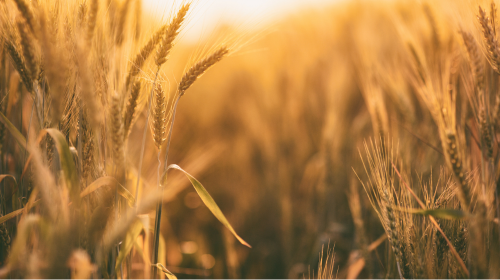
1 December 2023
In a package of measures announced by the UK government, 34 projects have been awarded payment as part of DEFRA’s Landscape Recovery scheme, which aim to protect woodland and restore peatlands. Also announced was the long anticipated legislation for Biodiversity Net Gain (BNG) which requires large housebuilders to deliver 10% BNG from January 2024, providing hope for greater consideration of soils’ role in achieving targets in the construction industry.
COP28 kicked off in Dubai this week, and it is hoped that food and agriculture will feature more prominently on agendas than in previous years. Multiple soil focused events are taking place, starting today (1 December) with Save Soils’ talk titled ‘Soil - Climate Change Solution, not Victim’. The Coalition of Action for Soil Health have launched their COPSoil hub to collate all things soil at this year’s COP. Follow the conversation on social media at #COPsoil!
WWF have published their annual WWF Basket report on the environmental impact of UK shopping baskets. It warns that time is running out to meet its target of reducing the footprint of the UK food system by 50% by 2030, though acknowledges progress has been made with retailers reporting a reduction in direct emissions. The report highlights the need for better data collection methods around soil health in order to reach its agriculture targets.
Three growers in Scotland are being supported by Scotland’s Rural College to develop peat-free propagation blocks for growing salad and vegetables. Through the three trials, the project aims to develop a propagation block that is fully sourced from within Scotland and free from peat and plastic.
Ecosystem Marketplace have published their 2023 State of the Voluntary Carbon Markets report, highlighting a record average price for voluntary carbon credits and three fold increase in agricultural credits being generated. This comes as soil carbon technology firm Agreena announced that its platform now covers over two million hectares across Europe.
The Italian Institute of Technology has unveiled a new artificial seed which is being used to improve soil monitoring. Mimicking the shape and aerodynamic behaviour of field maple seeds, the monitoring devices are dropped by drones into fields, providing natural dispersion and valuable data measurement.
The British Geology Survey, Heriot Watt and Edinburgh Universities are looking at the role of soil and geology in natural flood management. The research seeks to better understand flooding at large scales, and will investigate how water infiltrates different soil types and the impact of soil properties and land uses on infiltration rates. So far, results have found that soils and geology may be more dominant in controlling water catchment storage than forest cover.